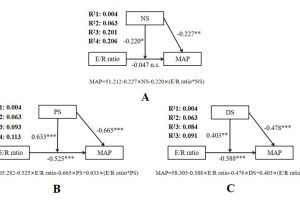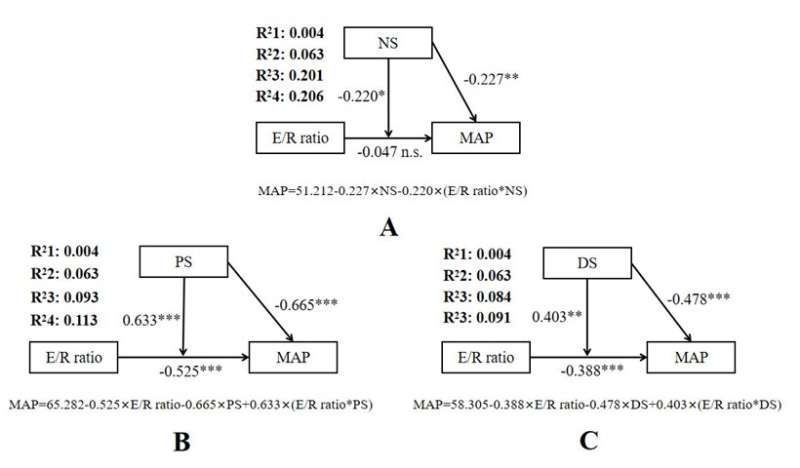Negative schizotypal traits predict reward motivation reduction in effort-reward imbalance


Effort-reward imbalance (ERI) refers to the imbalance between high-effort commitment and low-reward outcome, i.e., when one perceives he/she expends greater effort but gains disproportionately less rewards, which is important for daily life functioning.
Recent findings suggest that participants with high levels of schizotypy are more likely to perceive ERI. Moreover, there is also a correlation between ERI and gray matter volume reduction and altered resting-state functional connectivity in participants with high level of schizotypy. However, the underlying relationship between ERI and motivation to reward is yet fully known. In particular, it is not clear whether the effects of ERI on motivation may vary in different subtypes of schizotypal groups.
To bridge such a gap of knowledge, Drs. Huang Jia and Raymond Chan from the Institute of Psychology of the Chinese Academy of Sciences (CAS) and their collaborators have conducted a study to investigate to what extent E/R ratio would be related to reward motivation, and whether the relationship between the ERI and reward motivation can be differentially moderated by the schizotypal subtypes.
They recruited 843 college students to complete a set of online checklists specifically capturing schizotypal personality traits, ERI and motivation. They then conducted multiple linear regressions to construct models to investigate the moderating effects of schizotypal traits on the relationship between ERI and reward motivation.
According to the researchers, stressful ERI situation predicted the reduction of reward motivation. However, schizotypal subtypes showed differential prediction and moderation effects. In particular, negative schizotypal traits showed a significant negative moderating effect on the relationship between ERI and reward motivation while positive and disorganized schizotypal traits had significant positive moderating effects.
Source: Read Full Article




